- Tamu Complex, Dharan, Nepal
- info@edeneac.com
Study in Canada

Study in Canada
Why Should You Study in Canada?
In recent decades, Canada has been one of the most popular choices for so many students all around the globe. It has become a hub for students because it provides high-quality education at relatively cheaper tuition fees compared to universities in other countries like the UK, US, and Australia with degrees that are recognized and trusted globally.
Additionally, students get to experience cross-cultural experiences. Canada also stands out in the excellent quality of life and sufficient work permits after earning a degree. This permit enables students to live and work in Canada for up to 3 years after completion of their graduation.
The Great White North is indeed one of the most beautiful countries globally, which consistently ranks as one of the safest places for students from around the world. This beautiful and peaceful nation is also extremely welcoming and provides attractive immigration opportunities to students after getting their degrees.
Canadian Colleges that Nepalese Students Prefer :




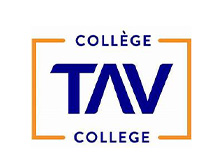
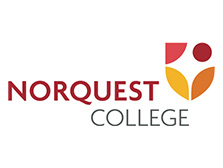
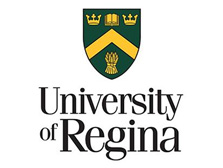
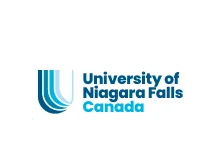


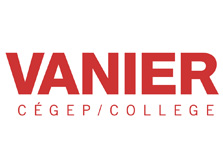

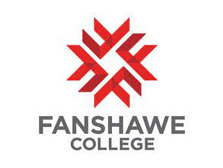


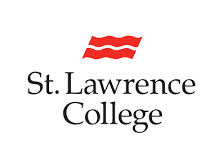


What Is The Cost of Living and Tuition in Canada?
Canada is quite affordable in comparison to other popular study destinations. Studying in Canada is one of the safest and most rewarding investments for a bright future for students. One can find both cheaper as well as expensive universities and colleges in Canada.
In the case of Canada, international students need to prove to the authorities that they have sufficient funds to match the financial needs to study and live in Canada. Living costs in Canada are a bit above average, but a high quality of life is guaranteed. Naturally, the cost of living varies from state to state and city to city. For example, living in a big city like Ontario tends to be more expensive.
Students should budget for an average of about 10000 to 12000 Canadian dollars per year to cover the cost of living expenses such as residence or rent, meal plans or groceries, cell phone plans, and spending money. International students in Canada are permitted to work up to 20 hours per week on study duration and 40 hours per week during holidays which tends to help them cover their expenses.
In addition, the general amount for tuition fees in Canada for international students can be from C$20,000 to C$30,000. Some common ranges for popular degree programs are as follows:
Bachelor's degree: C$550 to C$60,000+ /year (depending on the study field)
Master's degree: C$1035 to C$60,000/year
Post-Graduate Diploma: About C$20,000 on average
Doctoral Degree: C$40,000/year on average
Test Requirements
To study in Canada, one should start planning at least a year in advance. Standard requirements for most universities and colleges include an updated passport, proficiency in English, proof that you can afford to study and bear the living expenses in Canada.
English and French are the major languages in Canada. To successfully gain entry into Canada and admission to Canadian colleges or universities, every international student must give an IELTS, TOFEL, or PTE exam. The IELTS overall band score of 7 is preferable for a Post Graduate degree, and at least 6 overall band score is required with no band below 6.0 for an Undergraduate degree. In case of the PTE, a score of 65, with 60 in each component is necessary. The average score TOFEL requirement in Canadian universities is between 80-100.
Along with the English language proficiency test, one needs to have a decent academic score to qualify for a visa in Canada. Next, one needs to take the SAT or the ACT for undergraduate-level studies in Canada. Similarly, GRE or GMAT scores for graduate-level studies are required, especially if you seek a generous scholarship
Scholarship in Canada
There is a scholarship program for international students in every course depending on the Canadian university/college. However, the competition is fierce as you need to compete with students from all over the world. Since the tuition fee in Canada is relatively cheaper than that of other popular study destinations like the US, UK, and Australia, there are lower scholarship opportunities.
However, there are specific eligibility criteria and unique requirements when applying for a scholarship in Canada. So, make sure to contact us to understand every standard about scholarships for international students in Canada properly.
Popular Cities: Best Canadian Cities to Live in For International Students
Most of the Canadian cities and communities are student-friendly and deliver high-quality life and employment opportunities to international students. However, it is essential to research the city where you would want to live and study. Otherwise, you might end up in a Canadian city with no knowledge about its weather, facilities, restrictions, etc. Some of the popular cities are mentioned below:
Toronto : Being one of the most popular choices for international students, 17% of students in the universities in Toronto are from overseas. It is the 34th student-friendly city in the world. Toronto is known for its cultural diversity, food, festivals, art, and historical monuments.
Ottawa: Ottawa takes centre stage in terms of employment opportunities. It is affordable and the best city for work purposes.
Vancouver : Vancouver is expensive in comparison to other cities, but it is extremely student-friendly. It is the 17th student-friendly city in the world. It is popular for its pleasant environment and beauty.
Montreal : This city is full of universities that provide premier education. It is also known for its cultural extravaganza and festivals.
Quebec City: It is a French-speaking province that is known for its European grandeur and architecture. Quebec City is one of the cheapest cities in Canada for international students.
Post-Graduation Work Permit (PGWP)
The Post-Graduation Work Permit (PGWP) enables international students who have graduated from eligible Canadian designated learning institutions (DLIs) in Canada to obtain an open work permit to gain valuable Canadian work experience from an employer in Canada. This may even, later on, help you obtain a Permanent Residency (PR) in Canada.
In order to qualify for PGWP, students have to study in Canada for at least 8 months. There is a paper-based and online application to apply for PGWP. Likewise, a transcript and a letter from the school indicating course completion are the two most important documents that need to be presented while applying for PGWP. Students must apply for PGWP within 90 days before their study permit expires.
PGWP validity depends on the course length that students take in Canada. For example, if a student studies a program of 8 months to 1 year, the PGWP will be valid for 1 year. However, if a student takes a course of 2 years then, PGWP may be valid for 2 to 3 years.
For the application of PGWP, the student needs to pay around CAD 255, which is quite reasonable for a permit that allows a full-time working permit for up to 3 years. This Work Permit processing takes around 83 to 90 days.
Canada vs the USA for Nepali Students
Many students wonder about choosing USA or Canada and ask us which is better to study. Every year more Nepali students choose Canada because of more opportunities for scholarships and a lower tuition fee than in the US. Likewise, as the US is globally a competitive region for international students, Canada has lower competition. Also, international students' safety and living standards in Canada are higher than in the US. Another important reason is that it is easier to get a post-study work permit and permanent residency status once you have fulfilled the set requirements in Canada. You also have a greater chance of inviting your parents and family members to live with you in Canada in comparison to the US.
What Are Some Popular and Top Canadian Universities for International Students?
Some of the top Universities ranked as top universities by Times Higher Education are listed below:








